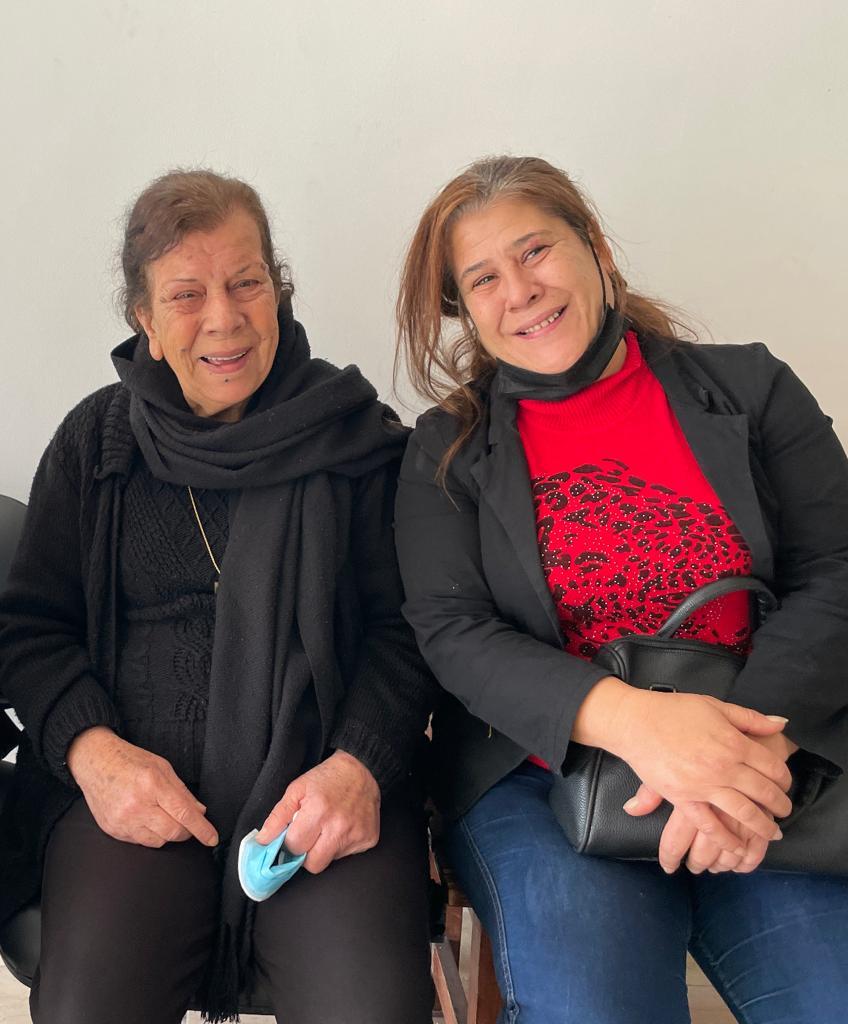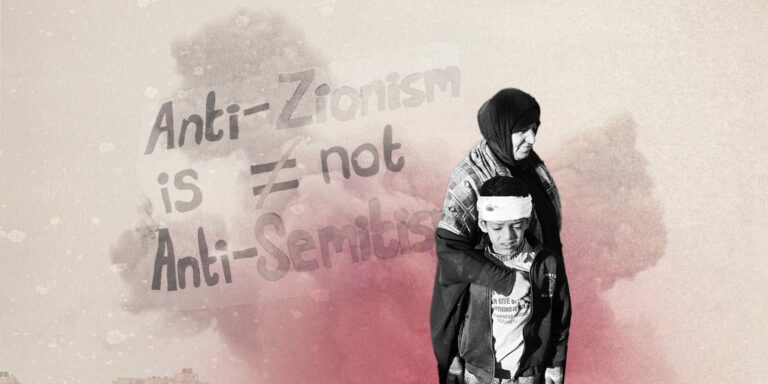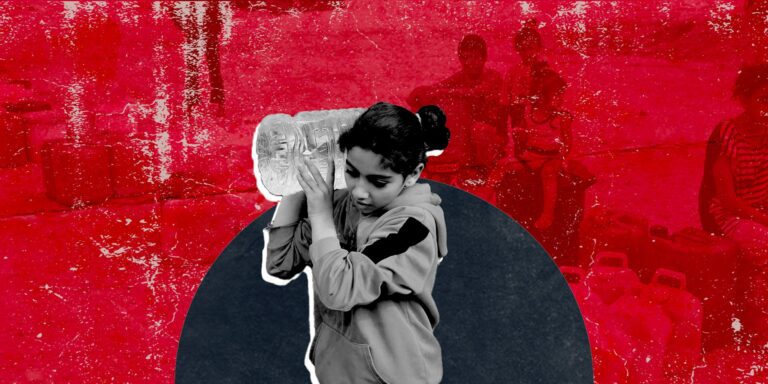After nine years, a verdict was issued.
On March 23, the Lebanese Court of Cassation presided by Judge Randa Kfoury found Karam Al-Bazi guilty of manslaughter for beating his wife Rola Yaqoub to death on July 7, 2013. Thus the judiciary finally confirmed what most people already knew. The driving force behind the conviction has been Rola’s mother Leila Khoury, who never gave up the struggle to obtain justice for her daughter.
The judges concluded that Rola did not die from a congenital hemorrhage, as was suggested by forensic doctors just after the crime, but as a result of repeated violence. The fatal blow, which took her life inside her home in Halba in north Lebanon, also orphaned her five girls, the youngest of whom was only a baby at the time. Two daughters saw how their mother took her last breath. The two witnesses, who are today 19 and 21 years of age, heard about the verdict at university, where they work hard to secure a better future for themselves and their sisters.

An Arduous Journey
Based on Article 550 of the Lebanese Penal Code, the Court of Cassation sentenced Bazi to five years in prison for “causing the death” of Rola Yaqoub,
Anyone who causes the death of a person through beatings, violence, assault or any other intentional act without intending to kill him shall be punishable by hard labor for a term of at least five years. The penalty shall be not less than seven years if the act was associated with one of the circumstances mentioned in the preceding two Articles.
Until the recent decision of the Court of Cassation, Bazi was able to enjoy his life in freedom. He dated, got married and had more children, one of whom he named Rola, the very woman he violently abused for years.
Bazi slept well, relying on his sister to take care of his five daughters. She did, with patience and love, at the expense of her own plans and projects. Bazi was able to enjoy life thanks to the decision of the investigative judge Alaa Al-Khatib, who in early 2014 released him after only six months of detention.
The least that can be said of that decision is that it constituted the biggest stumbling block on a road of bumps and prolonged prolongations, moving from one court to the next, from chief judges to advisors to many others, for nine long years. It was expected it would force the plaintiff, Rola’s mother Leila Khoury, to back off. But she never did.
Leila had many allies and facilitators. Relatives, lawyers, and human rights organizations stood by her, including KAFA (Enough Violence and Exploitation). Witnesses did everything to cooperate and continued to attend court sessions to testify that Bazi regularly abused Rola. There were bruises on her body and screams for help from the neighbors.
Why The Delay?
Prosecutor Leila Khoury appealed the unjust indictment in 2014, and obtained a decision from the a panel in the North of Lebanon to accept the appeal and convict him in 2016, of causing death (not killing intentionally or premeditatedly). However, Karam Al-Bazi soon came back and fought against the decision, but he lost that battle, so the file was referred to the Criminal Court in North Lebanon in early 2017.
Bazi regained the peace of mind that Judge Alaa al-Khatib had offered him, when two out of three judges in October 2018 acquitted him of manslaughter, noting that Judge Danny Shibli, who presided over the court, was the only one to disagree. He provided a full explanation why he did so, which was used extensively in the final journey appealing the criminal verdict, which began in February 2019 and ended in March 2022.
According to legal sources following up on the file, one of the factors hindering the file’s progress was the country’s overall state following the 2019 October uprising and the outbreak of the Corona pandemic. There were furthermore several resignations at the Court of Cassation looking into the file, as well as several cases of non-notifying the witnesses or the inability of a judge or prosecutor to be present. As a result, many sessions scheduled between January 2020 and March 2021 were postponed.
24-01-2014: Indictment issued by the investigative judge in the north, preventing the trial of the accused Karam Al-Bazi.
12-05- 2016: The Court of Appeal in North Lebanon indicted Bazi with causing the death of Rola Yacoub.
10-01-2017: The Court of Cassation rejected the defendant’s request to appeal the decision and referred the file to the Criminal Court in North Lebanon.
30-10-2018: The verdict issued by the Criminal Court in North Lebanon, acquitted the accused due to “insufficient evidence.”
08-11-2018 and 14-11-2018: Two appeals for cassation were submitted: the first by the Appeal Public Prosecution Office in North Lebanon and the second by Leila Khoury.
28-2-2019: Request for cassation accepted
26-6-2019: First cassation session.
May 2019 – February 2022: at least 7 court sessions were postponed
23-2-2022: Last hearing at the Court of Cassation
23-3-2022: Court of Cassation sentenced Bazi to 5 years in prison for causing the death of Rola Yaqoub.
Beyond Punishment
In Lebanon, the discussion about violence against women and murder was often limited to justice in the narrow sense of the word. Issues no less important, such as the principle of accountability, were often neglected. This also concerns the case of Rola Yacoub, which produced enormous health, moral and material costs as time passed.
No matter how positive the final judgment is, it does not weigh up to the massive efforts and costs made by the prosecution team, to reach an ideal value suitable for their file to be concluded and their wounds healed – not equal to the size of the crime and loss, of course. While the recent decision of the Court of Cassation has restored some faith in the justice system and the idea that the perpetrator will not go unpunished, it will not erase the journey fraught with misery and difficulties, which is imposed on anyone seeking justice in Lebanon. Access to the justice system, even in the case of social, media and human rights support, remains uncertain and very expensive.
And even if access is achieved, that does not mean the claimant will not be exhausted and crushed, health-wise, psychologically and economically, before the verdict is finally pronounced. Who will compensate him or her for the huge losses generated by procrastination, negligence and complexity, regardless of the case’s outcome?
In Rola Yaqoub’s case, the question is: who will compensate the mother and her niece Salwa, who supported her over nine years, while their health deteriorated, their morale sunk and aging accelerated due to the dashed hopes and dozens of trips by bus from Aleppo to Beirut to attend court sessions only to see them canceled for a thousand reasons?
The daughters’ silence does not mean that during all this time they were uncertain their mother had been wronged and taken from them too early. If the case proves one thing it is that nothing can cut the tie between a mother and her daughters. Meanwhile the battle for women’s justice continues …
Read Also:






